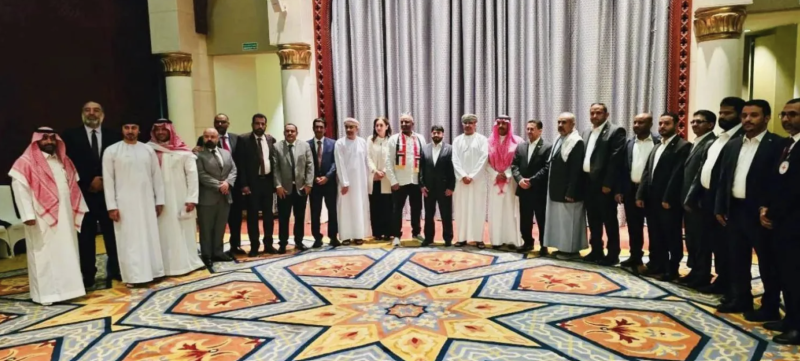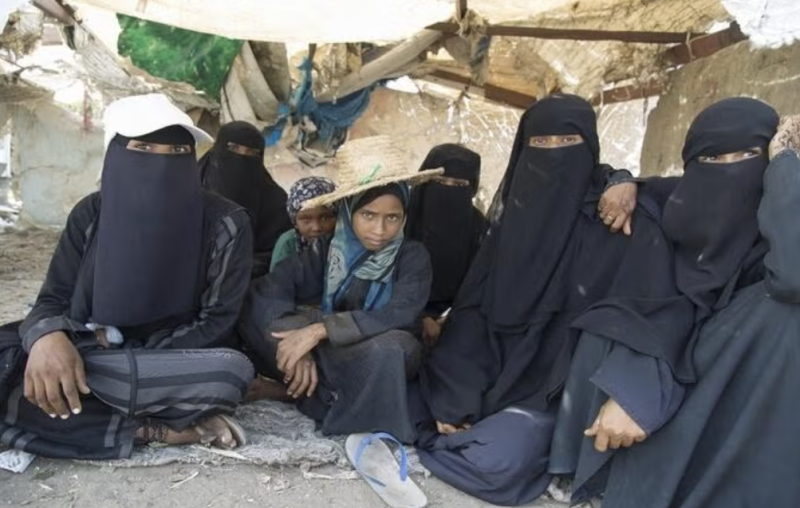Yemeni women celebrate country's shift towards gender equality


Yemeni women have voiced their pride over the appointment of the first female judge to the country’s Supreme Judicial Council and demanded more action to narrow the gender gap.
Only a third of women in Yemen are literate, making up less than 2 per cent of the political process and a mere 6 per cent of the labour force, the lowest in the world, according to the 2020 Global Gender Gap Index.
The head of the Presidential Council in Yemen, Dr Rashad Al Alimi, issued a decision on August 4, appointing Sabah Al Alwani to the senior judicial post in a country where men have always monopolised decision-making positions.
Yemen is in its eighth year of war since the Houthis took over the capital Sanaa in 2014, and the fighting has left hundreds of thousands of dead and millions more displaced in what the United Nations calls the world's worst humanitarian crisis.
“It’s one step on the path to empowering Yemeni women,” Ms Al Alwani tells The National.
“I was pleased with the decision. This is the first time that women are represented in such a high position in the country’s history.”
“Appointing me or any other woman to any leadership or decision-making position constitutes a major step in the right direction,” she added.
Yemen was ranked bottom of the World Economic Forum’s Gender Gap Index for 13 consecutive years. But despite the continuing war that the United Nations estimates has killed more than 230,000 people since 2014, Yemeni women have achieved remarkable feats in narrowing this gap.
“The timing of my appointment, months after the formation of the Presidential Council, demonstrates the council's readiness to promote women's participation in senior positions,” says Ms Al Alwani.
Decades of discrimination
The appointment was the second in a set of reforms made in favour of Yemeni women this year.
In February, in the southern city of Taez, women successfully fought against authorities to overturn the need to submit their male guardian's approval to be issued with a passport. The victory saw an end to decades-long male guardianship over women that has prevented them from receiving medical care or pursuing education abroad.
Through a series of vigils and activists' meetings with officials, the unconstitutional restraint on women's rights to travel, driven by deep-rooted tribal norms, was overturned.
“This was thanks to the insistence of the women who were denied passports, as well as the cooperation of some politicians and the support of activists abroad,” says Alhan Al Shaibani, one of the campaign leaders.
She was part of the campaign delegation that met Yemen's Prime Minister, Maeen Abdulmalik Saeed, in Aden in February, after which Mr Saeed ordered his government to review the procedures and requirements obstructing women obtaining a passport.
Aden has been the seat of the internationally recognised government since Houthi rebels seized Sanaa.
Ms Al Shaibani believes the success of that campaign is an important indicator that Yemen's society has begun to understand that women must be given equal rights.
“Some women were deprived of scholarships due to the lack of a passport,” she says. “The campaign was the beginning of a breakthrough for women to demand their legal rights and work towards gender equality.”
But Yasser Al Maliky, a Yemeni human rights lawyer who supports women’s rights, says the equality gap remains far too wide. “The war has delayed many political gains, which I believe are the first path to empowerment in other fields,” the lawyer says. “The culture of society is still hostile to women and this stems from a distorted cultural, religious and legal legacy towards them.”
“The day I see women with a third of the government seats and a third of high decision-making positions, and when I see male leaders who are proud of their wives and daughters, I will say that society's perspective towards women has begun to change and opportunities for empowerment are coming.”
'More is needed'
For Rasha Jarhum, a member of the National Consultation and Reconciliation Commission and head of the Peace Track Initiative, the limited achievements made by women in Yemen depend largely on political will.
“The appointment of Judge Al Alwani will enhance women's access to justice in general,” she says. “But women still face many challenges, including violence, discriminatory laws and institutions, and a society that perceives them as inferior.”
Yemeni women are among those hit hardest by a conflict that has led to what the UN has called the world's worst humanitarian crisis.
Beyond suffering from malnutrition and a lack of access to health care, Yemeni women are disproportionately affected by rape and other forms of sexual violence that tend to increase during war.
“There are some leaders who seriously seek to support and empower women, and others who underestimate the importance of it,” says Ms Jarhum. “Usually, any man who publicly supports women's rights is attacked and intimidated.

Saudi Arabia welcomed the agreement signed on Tuesday, December 23, 2025, in Muscat, Oman, between the internationally recognized Yemeni government…

By/April Longley Alley* Among the broader regional repercussions of the Gaza ceasefire in October, one of the most signifi…

Al-Hodeidah – Local sources in Yemen’s Al-Hodeidah province have disclosed that Houthi militias are resorting to new methods of exploit…